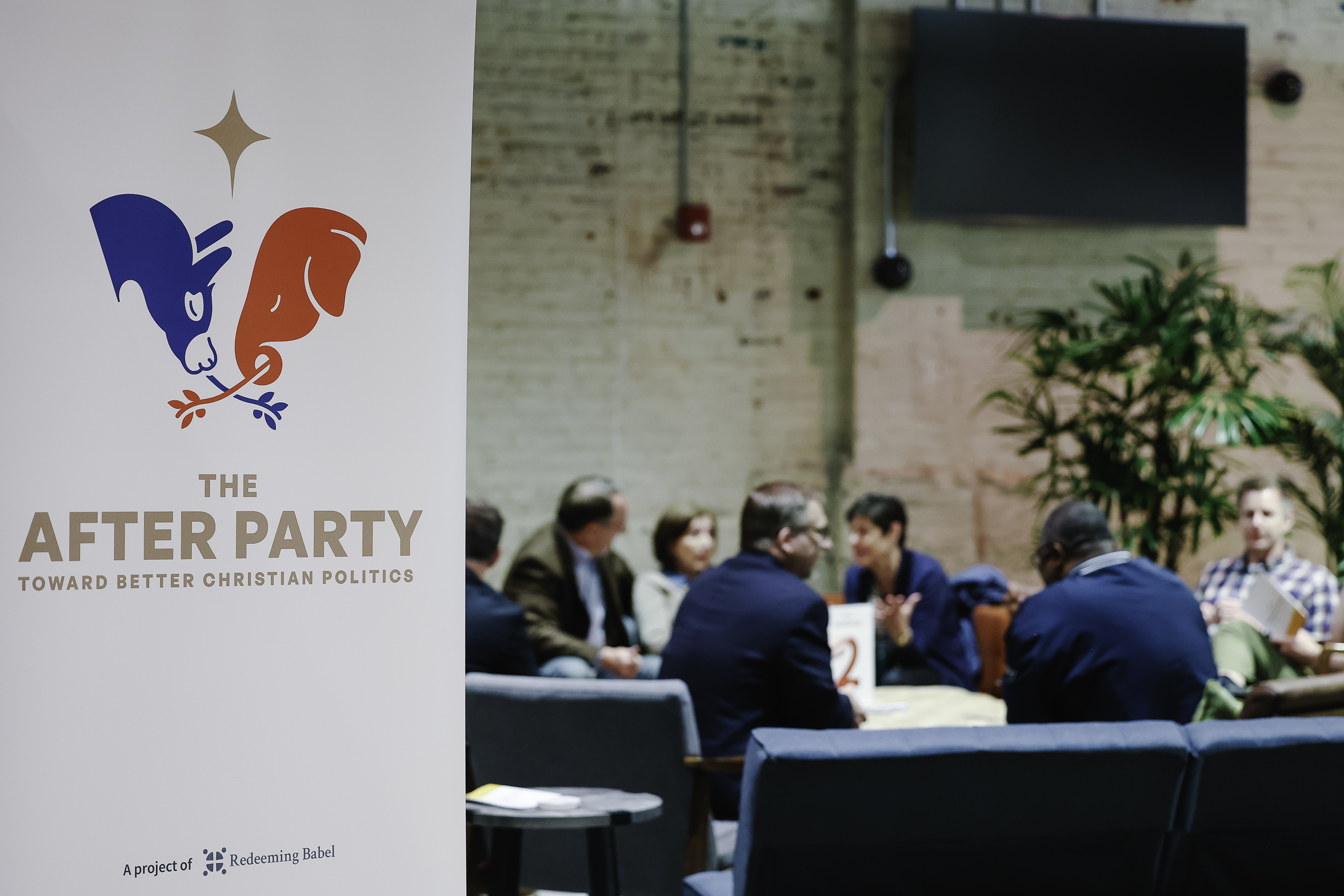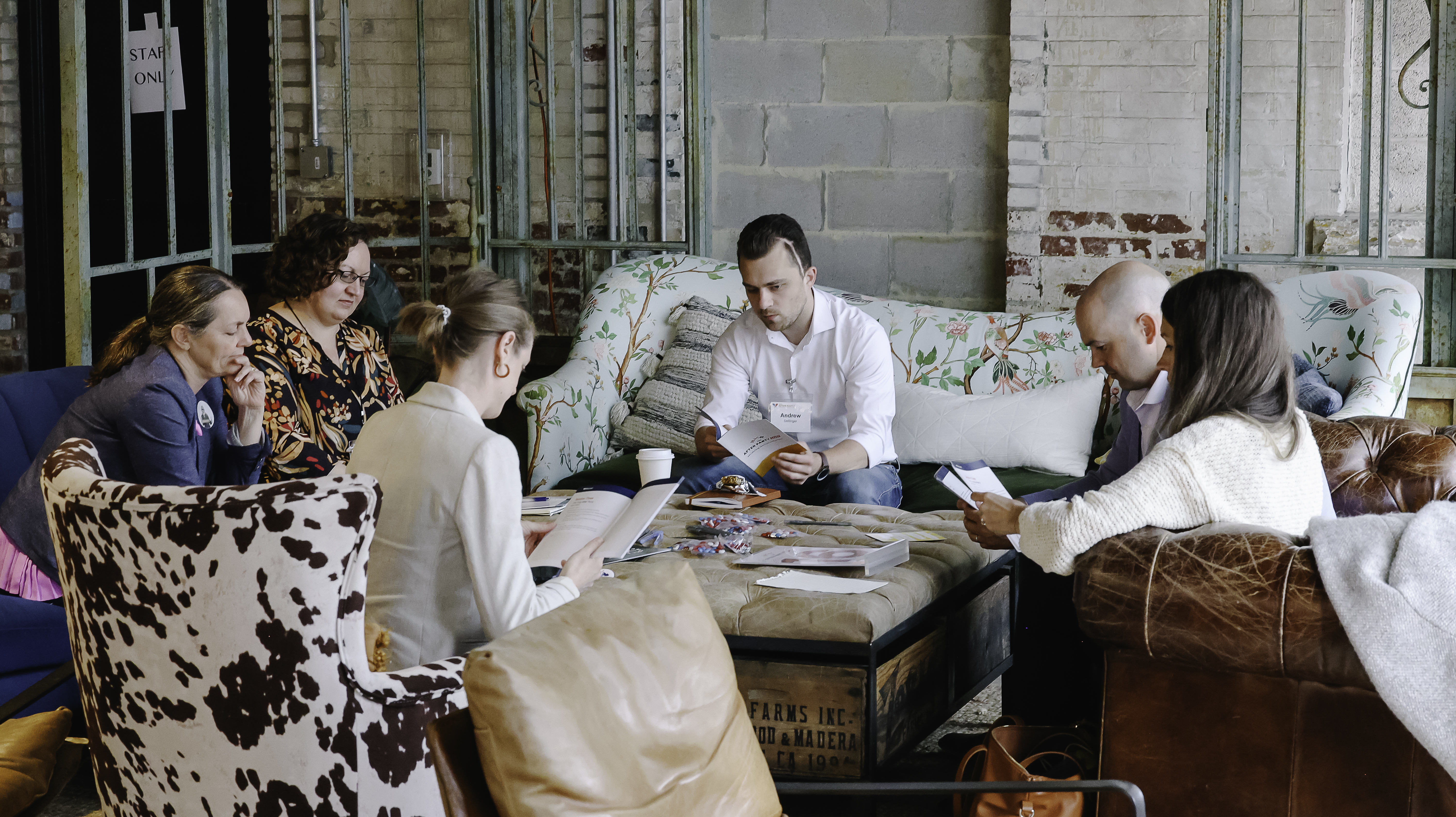The After Party Project: When Faith Comes Before Partisanship
In a moment when politics often divides more than it connects, The After Party is helping Christians rediscover civic engagement as a practice of love, not partisanship. It shows how pluralism can thrive when people of deep conviction create space to stay connected to one another despite disagreements. The After Party is meeting people at a moment of exhaustion, isolation, and longing. It’s pluralism grounded in community, scripture, and hope.
Redeeming Babel, the organization behind The After Party, creates resources that help Christians apply their faith to public life. With support from the New Pluralists’ Healing Starts Here initiative, they launched The After Party as a course, book, and worship album to reach Christians who felt spiritually and politically disconnected and were looking for a new way to engage with their neighbors across political divides.
A Practice Ground for Pluralism in Faith Communities
The After Party began with three evangelical leaders: Curtis Chang, David French, and Russell Moore. They shared a concern that many Christians no longer knew how to engage in political disagreement without feeling as if they were compromising their faith or relationships. Across churches, small groups, and communities, they saw people isolated, angry, and unsure where to turn.
Part of the challenge lies in the broader cultural and political landscape within Evangelical Christianity. For some, being open to pluralism or pro-democracy work is perceived as aligning with partisan agendas, which can trigger suspicion or even hostility. Many believers feel politically or spiritually “homeless,” unsure how to navigate their faith in a context where political and moral identities are tightly linked. The After Party works in this environment, offering a framework for engagement that doesn’t presume alignment with any hardline political or moral stance.
Their answer wasn’t a new political platform, but a spiritual one: a free, easy-to-use curriculum that invited Christians to shift their focus from what they believe to how they show up. Participants practice listening, engaging in disagreement, and maintaining connections, which are core civic skills grounded in their faith.

Since its launch in early 2024, The After Party has reached over 250,000 people across all 50 states and is still accelerating. One small group of six pastors met over lunch just three times using The After Party book. Afterward, they noticed a completely different tone in their churches’ political conversations compared to the divisions they experienced in 2020. Pastors have preached sermons inspired by it; laypeople have hosted gatherings in their homes. For many, it’s the first time they’ve had a biblically grounded, nonjudgmental space to talk honestly about politics.
Small Conversations, Big Cultural Shifts
The After Party’s quiet power lies in its approach: not mass mobilization, but small, trust-building conversations. In a climate of deep institutional skepticism, it succeeds not by speaking at people, but by walking with them. Its design, from messaging to music, signals belonging. Participants feel understood, not judged.
Early findings from The After Party’s research partnership with Hahrie Han and her team at Johns Hopkins show promising signs: many participants reported stronger relationships within their groups and felt better equipped to engage politically in the year ahead. The demand is growing. Participants want more: retreats, deeper formation, local chapters, and next courses. Redeeming Babel is responding with “After Party 2.0,” a new phase focused on storytelling, surfacing examples of Christians living out pluralism in practice, not just principle.
This story reminds us that pluralism isn’t about watering down convictions. It’s about building a table where people with deep differences can sit together and engage in conversation. For the estimated 13 million Christians who feel politically and spiritually adrift, The After Party offers a way to stay rooted in faith while reaching across divides.
“There is such a hunger for more. It's like they see something in the ethos, the DNA of The After Party. And they're like, yes, I want this. I want more of this in my life.”
